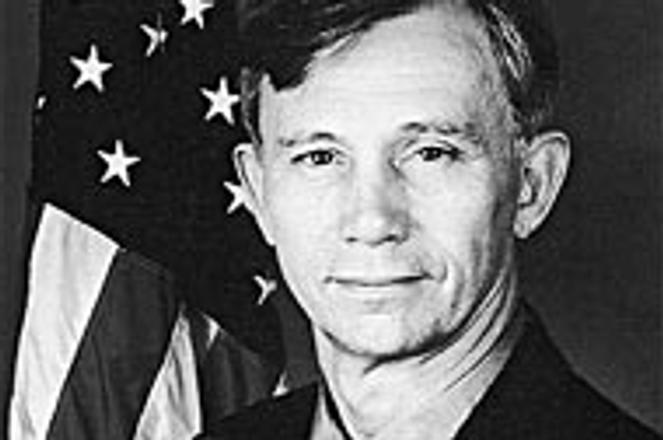"The clock is ticking towards the final opinions, negotiations and decisions."
Georgios Zavvos, EU Ambassador
"What then do we expect from our partners? Simple: true pluralism."
Ralph Johnson, US Ambassador
TASR
Ralph Johnson and Georgios Zavvos, ambassadors to Slovakia from the United States and the European Union, respectively, gave a one-two punch of speeches on October 22 that brought what their missions have been saying privately to government officials for months out into the public.
The speeches were noteworthy for their bluntness and for their sense of urgency. "The clock is ticking towards the final opinions, negotiations and decisions, which will begin as soon as late 1997," Zavvos said in his speech to a conference of non-governmental organization leaders in Banská Bystrica. "Only through its own efforts in the field of democracy as well as in economy, can Slovakia hope to join the EU. There is much work to be done, and in this task there can be no delay."
A decision on which countries will enter NATO will be made before that. Last month, US President Bill Clinton called on NATO to name the first group of countries to enter the military alliance by the spring or early summer.
Addressing the Slovak Foreign Policy Association in the east Slovak city of Prešov, Johnson said that US criticism has been aired "as friends," but he nevertheless made clear what his country expects Slovakia to do to gain admission into the two Western structures.
"United States support is for a Slovakia that is democratic not only in its electoral process, but also in its laws, their implementation, and in its preservation of individual rights, including the right to disagree without being considered an enemy of the state," Johnson said. "A commitment to democratic principles is not demonstrated by signing off on a checklist, but by assuring in practice that citizens' rights, including the right to dissent is fully honored."
In speeches delivered October 22, US Ambassador Ralph Johnson (left) and EU Ambassador Georgios Zavvos urged the Slovak government to respect dissent.Peter Brenkus
"What then do we expect from our partners?" the US ambassador continued. "Simple: true pluralism."
The Kováč Jr. and Remiáš cases
Johnson also urged the government to conclude its probes into the celebrated kidnapping of President Michal Kováč's son and the car bombing death of Róbert Remiáš, a confidant of former Slovak Intelligence Service officer Oskar Fegyveres, who said he participated in the Kováč Jr. abduction.
"...Investigations of such important cases as the kidnapping of Michal Kováč Jr. and the death of Róbert Remiáš [must] be pursued with determination," Johnson said. "...Abandoning them would, in our view, be very damaging to Slovakia's candidacy."
The government claims that it has concluded both probes. Chief investigators put on the cases by the Interior Ministry said they had wrapped up the investigations after running out of evidence and failing to identify any suspects. They added that they would reopen them if new evidence surfaced.
Reactions
The reactions to the speeches from Slovak officials ranged from no comment to anger. "There are plenty of ambassadors," said Foreign Minister Pavol Hamžík. "I see no reason to react to what each says."
But Ján Slota, chairman of the coalition member Slovak National Party (SNS), did. According to the daily Práca, Slota said Americans are snobs for lecturing them as Communists and Bolsheviks did before. "SNS members are not bootlickers," Slota said. Irena Belohorská, an MP for the Movement for a Democratic Slovakia (HZDS), and a member of parliamentary delegations to NATO and the EU, said she found Johnson's speech "filled with hatred against the Slovak nation."
A Western diplomat who asked not to be named said the two speeches did not include anything government officials had not already heard in private from NATO and EU representatives.


